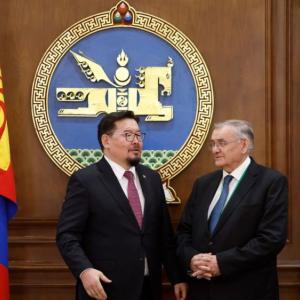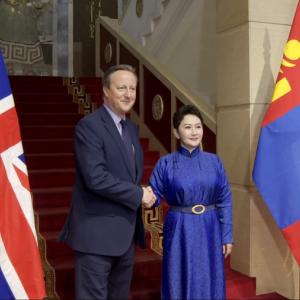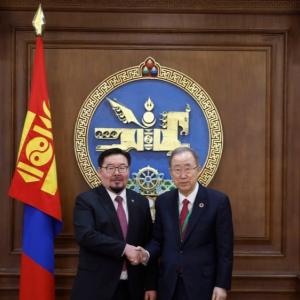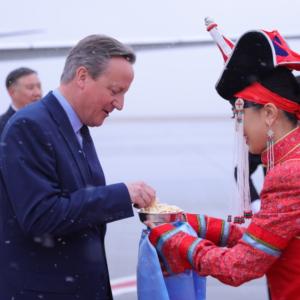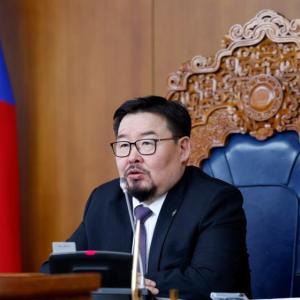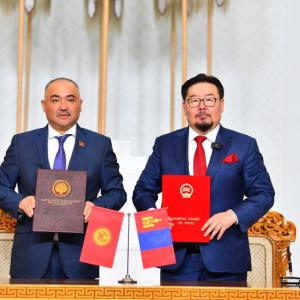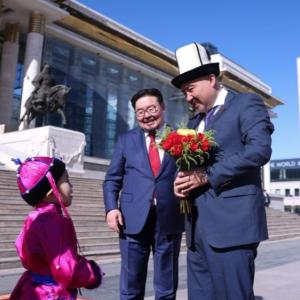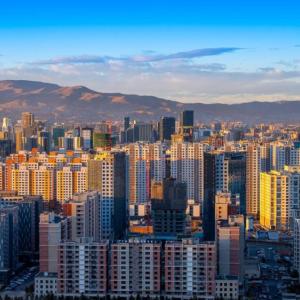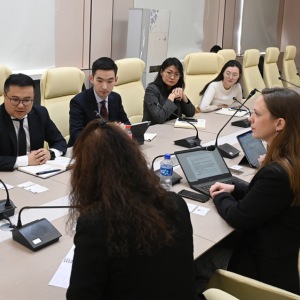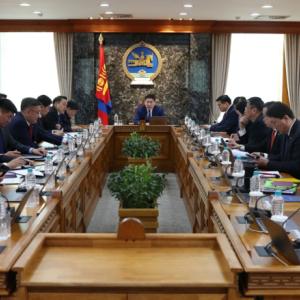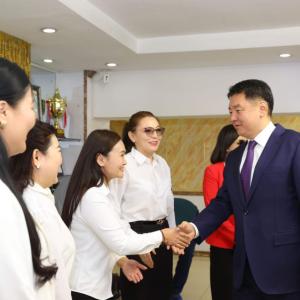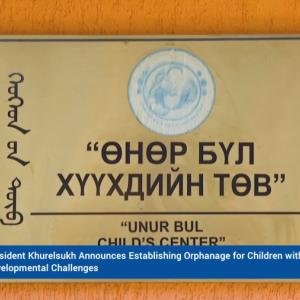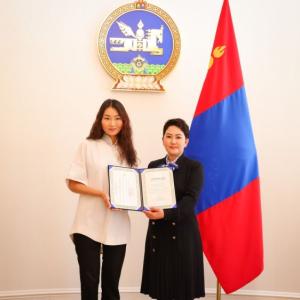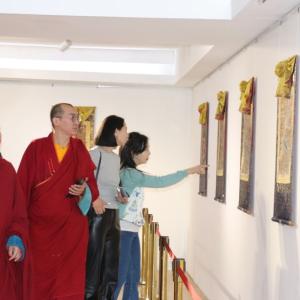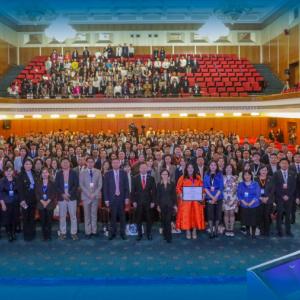Joint Declaration regarding the Strategic Partnership between Mongolia and the Federal Republic of Germany
To the 50th Anniversary of Establishment of diplomatic relations between Mongolia and Germany
Ulaanbaatar, February 7, 2024 /MONTSAME/. President of the Federal Republic of Germany Frank-Walter Steinmeier is paying a State Visit to Mongolia on February 7-8, 2024, at the invitation of President of Mongolia Khurelsukh Ukhnaa.
On February 7, 2024, Foreign Minister of Mongolia Batmunkh Battsetseg and Minister of State at the Federal Foreign Office of Germany Tobias Lindner signed the "Joint Declaration regarding the Strategic Partnership between Mongolia and the Federal Republic of Germany."
Since 2008, the two countries have been expanding their relations and cooperation within the framework of the Comprehensive Partnership. This partnership was elevated to a Strategic Partnership during the State Visit of President of the Federal Republic of Germany Frank-Walter Steinmeier to Mongolia.
Joint Declaration regarding the Strategic Partnership between Mongolia and the Federal Republic of Germany
1. At the invitation of H.E. Khurelsukh Ukhnaa, the President of Mongolia, H.E. Frank-Walter Steinmeier, the President of the Federal Republic of Germany, paid a State Visit to Mongolia on February 7-8, 2024. During the State Visit, Mongolia and the Federal Republic of Germany (hereinafter: the sides) welcomed the progressive development of their bilateral relations and cooperation, which are based on nearly 100 years of friendship between the people of Mongolia and Germany, as well as 50 years of prosperous diplomatic relations, within the framework of the Joint Statement of 19 September 1995 on the Basis of Relations between Mongolia and the Federal Republic of Germany and the Joint Declaration of 5 September 2008 on the Comprehensive Partnership between Mongolia and the Federal Republic of Germany. The two sides also emphasised major achievements resulting from their cooperation in the fields of politics, security, democratic governance, defence, economics, trade, environment, culture, education, science, development cooperation and civil society as well as in the humanitarian sector, in line with the 2030 Agenda.
2. The two sides have decided to upgrade their cooperation to the level of a Strategic Partnership based on the shared values of democracy, human rights, freedom and the rule of law as well as market economy principles, while consolidating Mongolia’s peaceful, open, independent and multi-pillared foreign policy, including its Third Neighbor policy, and Germany’s global commitments and longstanding efforts to advance peace and security and to uphold the rules-based international order and protect the climate.
3. Within the scope of the Strategic Partnership, the two sides jointly decided to cooperate in the following endeavors:
3.1. To strengthen their cooperation in the areas of politics and security, including through the exchange of high-level visits; to further streamline their multilateral cooperation within regional and international fora, emphasizing Mongolia’s full support for Germany’s aspirations to become a permanent member of the UN Security Council in order to actively contribute to a strengthened multilateralism with the UN at its core; to build on their achievements and contributions to efforts towards disarmament and the non-proliferation of weapons of mass destruction and the fight against terrorism; to continue efforts to promote joint contributions to UN peacekeeping operations, including cooperation on defense-sector capacity-building, where feasible.
3.2. To advocate the values of democracy, the rule of law, transparency, good governance, democratic parliamentarian institutions and civil society, particularly to support deepening collaboration between the two sides’ parliaments, including continued support by Germany for Mongolia’s efforts to strengthen judicial and legal reform; to further advance people-to-people exchange and encourage cooperation at the level of municipal administration and the activities of German political foundations, as well as the promotion of gender equality and feminist foreign and development policy.
3.3. To expand economic, trade and investment collaboration, bearing in mind the objectives of Mongolia’s long-term development policy Vision-2050, including the improvement of sustainable business, support for small and medium-sized enterprises (SMEs) and the conditions for foreign investment, and to encourage cooperation in the development of tourism, agriculture and forestry.
3.4. To deepen cooperation in education, culture, sports, science, health and inclusive and gender-sensitive social welfare. In this connection, the two sides agreed to continue their efforts to support scholarship programs for Mongolian students to obtain higher education and vocational training in Germany, including Mongolia’s Mission-2100 initiative, as well as the introduction of German best practices in vocational education and training. They agreed to continue their promotion of Mongolian studies in Germany and vice versa and to boost cooperation in science and research.
3.5. To intensify cooperation in fields of particular mutual interest, including research in archaeology as well as the mining sector, the latter particularly with regards to the implementation of the Agreement between the Government of the Federal Republic of Germany and the Government of Mongolia on cooperation in natural resources, industry and technology, as well as their continued support for the German-Mongolian Institute for Resources and Technology, a joint flagship project under the aforementioned Agreement.
3.6. To cooperate on adapting to and particularly mitigating the climate crisis as well as its risks for human security and peace and on protecting the biodiversity and sustainable management of protected areas. In light of the shared goals of energy security and the path to transitioning away from fossil fuels, and taking note of Mongolia’s significant potential for solar and wind energy, the two sides agreed to promote the deployment of renewable energy and green hydrogen technologies as well as of energy efficiency measures, and to strengthen their policies in these areas as an important step towards sustainable long-term economic development and a just economic transition. In this context, the Mongolian side will ensure full adherence to investment contracts especially in the renewable energy sector.
3.7. To strengthen their cooperation on preserving water resources and combating deforestation and desertification, while supporting the National Campaign “One Billion Trees” initiated by the President of Mongolia.
4. The two sides stressed the significance of their well-established bilateral mechanisms, including development cooperation and the contribution of civil society and the private sector to furthering bilateral relations and cooperation between the two countries on the above-mentioned objectives.

 Ulaanbaatar
Ulaanbaatar



